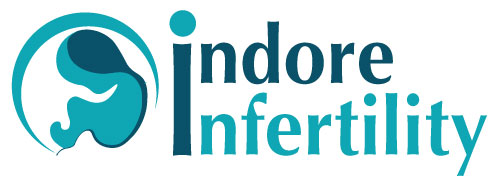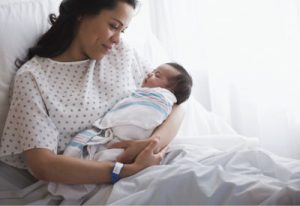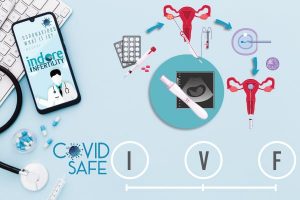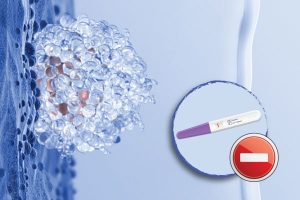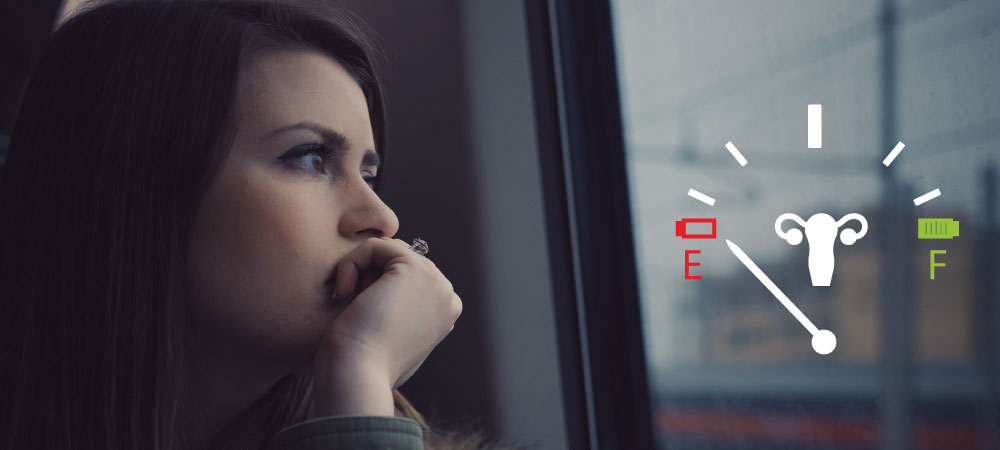

WHAT IS PREMATURE OVARIAN FAILURE (POF)
Premature Ovarian Failure (POF) or Primary Ovarian Insufficiency (POI) is complete cessation of ovarian activity before the age of 40 years.
This also leads to cessation of menstrual cycles hence causing menopause.
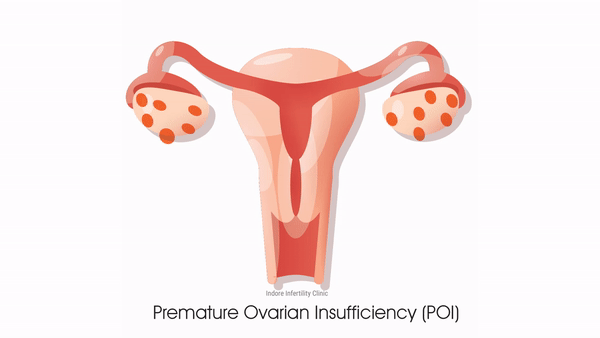
What is the difference between Premature Ovarian Failure (POF) and Primary Ovarian Insufficiency (POI)?
Irregular and intermittent ovarian function leading to spontaneous pregnancy is known to occur in patients who were earlier diagnosed with POF. 5-10% of patients earlier diagnosed as POF experience spontaneous conception. Therefore, ”Premature Ovarian Failure” is a not an absolute condition and the term Premature Ovarian failure is therefore a misnomer.
‘‘Premature Ovarian Insufficiency” or ‘Premature Ovarian Dysfunction’ is a more accurate term as it reflects the reversible nature of this condition. It also avoids the negative connotation that comes with the term ‘FAILURE‘
How common is Primary Ovarian Insufficiency?
POI is a relatively rare condition, it becomes more common with increasing age, affecting 1 in 10,000 women (less than 20 years of age), 1 in 1000 women (20-30 years of age) and 1 in 100 women (30-40 years of age).
What are the symptoms of POF and how is Premature Ovarian Failure Diagnosed ?
• Irregular menstrual cycles for at least consecutive 3 months.
• Hot flushes, difficulty in getting pregnant.
• Vaginal dryness
• High FSH levels and low estradiol levels (Two tests at least one month apart)
• Low Ante Mullerian Hormone (AMH) level
• USG: Transvaginal Ultrasound revealing very few or no Antral Follicles.
• Normal Prolactin and Thyroid function tests
What are the causes of Premature Ovarian Failure ?
Follicle depletion can be caused by many factors. The common causes are:
- Chromosomal Abnormalities : Gonadal dysgenesis, Turner syndrome
- Gene mutations: FMR1 gene for fragile X
- Multiple Endocrinal Abnormalities: Hypoparathyroidism, hypoadrenalism, Hypothyroidism
- Previous Pelvic Surgery : causes alterations in blood supply and fibrosis
- Damage to Ovarian Tissue because of chemotherapy or radiotherapy : Depends on duration and type of chemotherapy and whether it is combined with radiotherapy or not.
- Infectious diseases of pelvis also cause the blood supply to be affected and fibrosis
- Autoimmune Mechanism: Adrenal, thyroid or ovarian antibodies may be present causing POI
- Idiopathic: In many cases, cause remains unknown.
What is Diminished Ovarian Reserve ? Is it different from POI ?
Diminished Ovarian Reserve (DOR) and POI are slightly different but the common factor is that both are associated with poor fertility outcomes.
It is difficult to differentiate DOR from POI and POR (Poor Ovarian Responders) because the definition of DOR remains blurry.
The main defining factors for DOR are :
- Age more than 40,
- Abnormal Ovarian Reserve tests such as antral follicle count (AFC) and anti-mullerian hormone (AMH)
- And prior suboptimal response to stimulation.
What should be the Life Style modifications in case of ovarian failure or insufficiency ?
Stop smoking, Regular weight bearing exercises and attaining a healthy weight range are good in the long term.
Can POI or POF be cured by medication ?
There is no permanent cure for POI. The ovarian reserve cannot be regenerated by any medicine or surgery. There are no interventions that have reliably shown to increase ovarian activity.
what Treatment Options are available for POF or poi ?
Treatment requires understanding both emotional and physical needs of young women diagnosed with this problem. Hormone therapy with a combination of estrogen and progesterone is given to ensure optimization of bone, cardiovascular and sexual health.
Estrogen treatment has also shown to increase ovulation rates but the effect is unpredictable.
As far as fertility treatment is concerned, ART with IVF and soft stimulation protocols provides early results.
In some cases inspite of Ovarian Stimulation, viable oocytes are not retrieved. In these cases, Oocyte Donation is the most successful treatment for women with POI.
You might want to read
